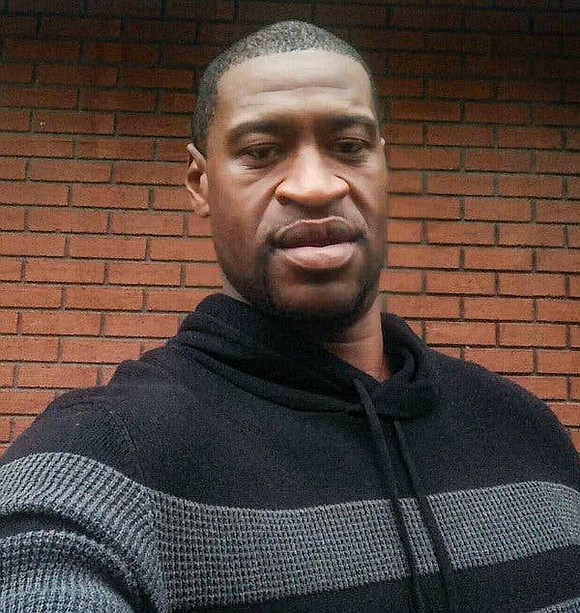Judge drops third-degree murder charge against former officer Derek Chauvin in George Floyd's death, but second-degree murder charge remains
CNN/Stylemagazine.com Newswire | 10/23/2020, 10:06 a.m.
By Dakin Andone, Omar Jimenez, Brad Parks and Kay Jones, CNN
(CNN) -- A Hennepin County judge has dropped a third-degree murder charge against former Minneapolis police officer Derek Chauvin in the killing of George Floyd, but denied the defendant's motion to dismiss two other charges against him.
Chauvin still faces the higher charge of second-degree unintentional murder and a second-degree manslaughter charge in Floyd's death on May 25, which sparked nationwide protests and a reckoning over race and policing this summer.
Chauvin, who was released on $1 million bond earlier this month, was seen in videos of the incident kneeling on Floyd's neck for almost eight minutes, while the Black man told Chauvin and three other officers -- Tou Thao, Thomas Lane and J. Alexander Kueng -- that he couldn't breathe.
In the ruling issued Wednesday, Judge Peter Cahill also denied motions to dismiss charges against the other now-former Minneapolis police officers, who have been charged with aiding and abetting second-degree murder and aiding and abetting second-degree manslaughter.
A hearing was held on the motions in September -- the first time all four defendants appeared in court together.
Cahill's ruling states the jury should decide if the state of Minnesota has proven the guilt of the former officers, writing in his summary that the state has met the burden of probable cause in the charges against Thao, Lane and Kueng.
The exception was the third-degree murder charge against Chauvin. Cahill wrote the charge can "be sustained only in situations in which the defendant's actions were 'eminently dangerous to other persons' and were not specifically directed at the particular person whose death occurred."
But the evidence presented by the state does not show that Chauvin's actions were "eminently dangerous" to anyone but Floyd, the ruling says.
CNN senior legal analyst Laura Coates explained the third-degree murder charge was "odd" to begin with, saying it "wouldn't have stuck."
"Third-degree in Minnesota is meant to be someone firing a gun into a crowd with no specific target or driving down the wrong side of the road," Coates said. "You mean to harm or know that you could harm someone, but you don't have a particular person in mind or a personal vendetta."
In a statement, Minnesota Attorney General Keith Ellison, who is leading the prosecution of Floyd's death, called the ruling a "positive step forward in the path toward justice for George Floyd, his family, our community, and Minnesota."
"The court has sustained eight out of nine charges against the defendants in the murder of George Floyd, including the most serious charges against all four defendants," Ellison said.
"We look forward to presenting the prosecution's case to a jury in Hennepin County," he added.
Floyd family confident officers will be held accountable, attorney says
Chauvin was initially charged with third-degree murder and second-degree manslaughter by the Hennepin County Attorney's Office several days after Floyd was killed, a charge that Floyd's family felt at the time was not strong enough.
Gov. Tim Walz ultimately appointed Ellison to take over the case after days of protests and speaking with the Floyd family. Ellison announced a few days later that his office had charged Chauvin with a more serious charge of second-degree murder. Charges were also filed against Lane, Kueng and Thao.
Floyd family attorney Benjamin Crump and his co-counsel Antonio Romanucci said in a statement they were "gratified that the court preserved eight of the nine charges," including the second-degree murder charge against Chauvin.
"The family of George Floyd has confidence that Minnesota Attorney General Keith Ellison will make sure that the officers are held accountable to the full extent of the law based on the evidence that we witnessed on that video tape," the statement said.
An attorney for Chauvin declined to comment. Kueng's attorney said the ruling "reflects considerable scholarship, integrity and work ethic -- which is appreciated." The attorney, Thomas C. Plunkett declined to comment further, saying he was still in the process of reviewing the order.
Attorneys for the other officers have not responded to CNN's requests for comment.
In response to the ruling, Walz's office announced he had taken the "precautionary step" of activating the Minnesota National Guard, making them available for "public safety efforts" in the Twin Cities area.
Walz called the ruling a "positive step in the path toward justice for George Floyd."




